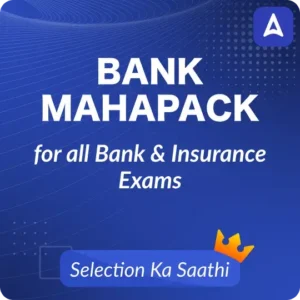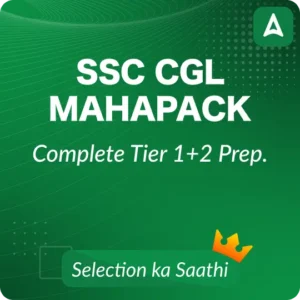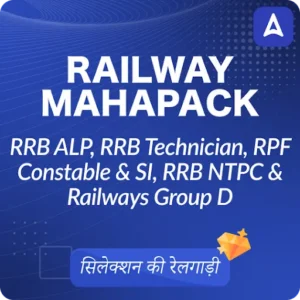Table of Contents
The Pension Fund Regulatory and Development Authority (PFRDA) is set to conduct the Grade A (Assistant Manager) recruitment in 2025. Candidates planning to appear for the exam should begin their preparation by going through the PFRDA Grade A Syllabus 2025 and exam pattern in detail. The recruitment is being held for multiple streams, including General, Information Technology, Finance & Accounts, Research, Legal, and Official Language (Rajbhasha). To help aspirants prepare effectively, the complete stream-wise syllabus for PFRDA Grade A Officer 2025 has been outlined below.
PFRDA Grade A Result 2025 Out- Click to Check
PFRDA Grade A Mains Admit Card 2025- Click to Check
PFRDA Grade A Syllabus 2025 and Exam Pattern
The PFRDA Assistant Manager recruitment is conducted in three stages – Phase I (Prelims), Phase II (Mains), and the Interview round. The examination is designed to assess candidates on their subject knowledge, analytical ability, and stream-specific expertise, ensuring the selection of well-qualified professionals.
According to the PFRDA Grade A Syllabus, the Phase I exam is divided into two papers that test candidates on English Language, Quantitative Aptitude, Reasoning Ability, General Awareness, and Professional Knowledge. In Phase II, the assessment includes a Descriptive English paper along with an Objective test based on stream-specific professional knowledge.
To succeed, candidates must clearly understand the syllabus and exam pattern, allowing them to plan and execute an effective preparation strategy. Only those who clear both written phases will advance to the Interview stage.
PFRDA Grade A Exam Pattern 2025
Candidates must be familiar with the PFRDA Grade A Exam Pattern 2025 to get a clear idea about the number of questions, marking scheme, and subjects covered. Both Phase I and Phase II include two papers: Paper 1, which tests general aptitude, and Paper 2, which evaluates professional knowledge in the candidate’s chosen stream. The detailed structure of Phase I and Phase II exams is outlined below.
PFRDA Grade A Phase I Exam Pattern
Candidates must first appear for the Phase I online examination, which is divided into two papers of 100 marks each. The sections covered in the Phase I exam are listed below for candidates’ reference.
Negative Marking: ¼ mark will be deducted for each wrong answer in Phase I (Paper 1 & 2).
| PFRDA Assistant Manager Exam Pattern for Phase 1 | ||||
| Paper | Sections | No. of Questions | Marks | Duration |
| Paper I (All Streams) | English Language | 20 | 25 | 60 Minutes |
| Quantitative Aptitude | 20 | 25 | ||
| Reasoning | 20 | 25 | ||
| General Awareness | 20 | 25 | ||
| Total | 80 | 100 | ||
| Paper II | General Stream: Multiple choice questions on subjects Commerce, Accountancy, Management, Finance, Costing, Companies Act, Economics and Pension Sector. | 50 | 100 | 40 Minutes |
| Information Technology, Finance and Accounts, Research (Economics), Research (Statistics), Legal and Official Language (Rajbhasha) Streams: Multiple choice questions on Specialised subject related to stream. | 50 | 100 | 40 Minutes | |
PFRDA Grade A Phase II Exam Pattern
The Phase 2 exam pattern for the PFRDA Assistant Manager Exam has been discussed here for the candidates. A ¼ mark will be deducted for wrong answers in Paper II.
| PFRDA Assistant Manager Exam Pattern for Phase 2 | ||||
| Paper | Streams/Subject | Maximum Marks | No. of Questions | Duration |
| Paper 1 | All Streams: English (Descriptive Test) to test drafting skills | 100 | 3 | 60 minutes |
| Paper 2 | General Stream: MCQs on Commerce, Accountancy, Management, Finance, Costing, Companies Act, Economics, and Pension Sector | 100 | 50 | 40 minutes |
| IT, Finance & Accounts, Research (Economics/Statistics), Legal, and Official Language (Rajbhasha) Streams: Multiple choice questions on specialised subjects related to stream | 100 | 50 | 40 minutes | |
Note: All question papers (in both the Phase I & Phase II, except the Test of English) will be set bilingually in Hindi and English.
PFRDA Grade A Officer Syllabus 2025
The detailed PFRDA Assistant Manager Syllabus 2025 for each subject is provided in the table below. Candidates are advised to review all the topics carefully and plan a structured study schedule to ensure thorough preparation before the exam.
PFRDA Grade A Syllabus
The PFRDA Grade A Officer Syllabus 2025 is provided in the table below for candidates’ reference.
| Subjects | Topics |
| English Language |
|
| Quantitative Aptitude |
|
| Reasoning Ability |
|
| General Awareness |
|
PFRDA Grade A Syllabus for Professional Knowledge
The PFRDA Grade A exam syllabus varies depending on the stream selected by the candidate—such as General, Legal, Finance & Accounts, IT, Research (Economics), and Official Language (Rajbhasha). For candidates opting for the General stream, the syllabus covers a wide range of topics, including Economics, Finance, Cost Accounting, Commerce, Management, and a detailed understanding of the Pension Sector.
Meanwhile, specialised streams like Legal, IT, and Finance focus more on subject-specific knowledge such as regulatory laws, technical skills, and financial regulations relevant to the respective discipline.
1. General Stream (For Both Phases)
| Stream | Syllabus Topics |
|
Commerce & Accountancy
|
Accounting Standards with specific reference to Accounting for Depreciation, Inventories, Revenue Recognition, Fixed Assets, Foreign Exchange Transactions, Investments. |
| Accounting as a financial information system; | |
| Cash Flow Statement, Fund flow statement, Financial statement analysis, Ratio analysis; | |
| Accounting for Share Capital Transactions including Bonus Shares, Right Shares. | |
| Employee Stock Option and Buy-Back of Securities. | |
| Preparation and Presentation of Company Final Accounts. | |
|
Management
|
Management: its nature and scope; The Management Processes; Planning, Organisation, Staffing, Directing and Controlling; |
| The Role of a Manager in an Organisation. Leadership: The Tasks of a Leader; | |
| Leadership Styles; Leadership Theories; A successful Leader versus an effective Leader. | |
| Human Resource Development: Concept of HRD; Goals of HRD; | |
| Motivation, Morale and Incentives: Theories of Motivation; How Managers Motivate; Concept of Morale; Factors determining morale; Role of Incentives in Building up Morale. | |
| Communication: Steps in the Communication Process; Communication Channels; Oral versus Written Communication; Verbal versus non-verbal Communication; upward, downward and lateral communication; Barriers to Communication, Role of Information Technology. | |
|
Finance
|
Financial System |
| Role and Functions of Regulatory bodies in the Financial Sector. | |
| Financial Markets | |
| Primary and Secondary Markets (Forex, Money, Bond, Equity, etc.), functions, instruments, recent developments. | |
| General Topics | |
| Basics of Derivatives: Forward, Futures and Swap | |
| Recent Developments in the Financial Sector | |
| Financial Inclusion- use of technology | |
| Alternate source of finance, private and social cost-benefit, Public-Private Partnership | |
| Direct and Indirect taxes; Non-tax sources of Revenue, GST, Finance Commission, Fiscal Policy, Fiscal Responsibility and Budget Management Act (FRBM), | |
| Inflation: Definition, trends, estimates, consequences, and remedies (control): WPI, CPI-components and trends. | |
|
Costing
|
Overview of Cost and Management Accounting – Introduction to Cost and Management Accounting, Objectives and Scope of Cost and Management Accounting. |
| Methods of Costing – Single Output/ Unit Costing, Job Costing, Batch Costing, Contract Costing, Process/Operation Costing, Costing of Service Sectors. | |
| Basics of Cost Control and Analysis – (i) Standard Costing, (ii) Marginal Costing, (iii) Budget and Budgetary Control. | |
| Lean System and Innovation:- | |
| Introduction to Lean System | |
| Just-in-Time (JIT) | |
| Kaizen Costing | |
| Total Productive Maintenance (TPM) | |
| 5Ss | |
| Cellular Manufacturing/ One-Piece Flow Production Systems | |
| Six Sigma (SS) | |
| Introduction to Process Innovation and Business Process Re-engineering (BPR). | |
| Companies Act | The Companies Act, 2013 – Specific reference to Chapter III, Chapter IV, Chapter VIII, Chapter X, Chapter XI, Chapter XII and Chapter XXVII. |
|
Economics
|
Demand and Supply, Market Structures, National Income: Concepts and Measurement, Classical & Keynesian Approach Determination of output and employment, Consumption Function, Investment Function, Multiplier and Accelerator, Demand and Supply for Money , IS – LM, Inflation and Phillips Curve, Business Cycles |
| Balance of Payments, Foreign Exchange Markets, Inflation, Monetary and Fiscal Policy, Non- banking Financial Institutions. | |
|
Pension Sector
|
Status of pension sector in India |
| Types of retirement schemes in India and their features | |
| National Pension System | |
| Basics of investment | |
| Annuity Plans | |
| Atal Pension Yojana |
2. Information Technology Stream (For Both Phases)
| Topic | Details |
| Database Concepts |
ER-model, Relational model: relational algebra, tuple calculus, integrity constraints, normal forms. File organization, indexing (e.g., B and B+ trees), transactions, and concurrency control.
|
| SQL Queries |
Select, view, truncate, delete, update, alter, inner join, different types of outer joins, use of aggregate functions, union, intersection, except, in and exist clauses, nested queries.
|
| Programming Concepts (Java / C C++) |
Program control (iteration, recursion, functions), scope of variables, binding of variables & functions, parameter passing, functional and logic programming, OOPS concepts, inheritance, class and object, constructors, functions, exception handling.
|
| Data Analytics Languages (Python / R) |
Regex, slicing, data reshaping, dataframes, dictionaries and sets, file management, classes and functions, data mining, lists, importing and exporting data, charts and graphs.
|
| Algorithms for Problem Solving |
Tree and graph traversals, connected components, spanning trees, shortest paths; hashing, sorting, searching; design techniques (greedy, dynamic programming, divide-and-conquer).
|
| Networking Concepts |
ISO/OSI stack, LAN technologies (Ethernet, token ring), TCP/UDP, IP, basic concepts of switches, gateways, and routers, application layer protocols (DNS, SMTP, POP, FTP, HTTP), firewalls.
|
| Information & Cyber Security Concepts |
Cyber attacks, software development security, network security, authentication, CIA – confidentiality, integrity and availability, network audit, systems audit.
|
| Data Warehousing |
Data extraction, data cleaning, data transformation, data loading, metadata, data cube, data mart, data models.
|
| Shell Programming |
Shell scripting basics, shell variables, shell script arguments, if statement, loop, return, basic UNIX commands.
|
| AI / ML |
Machine learning, supervised learning, unsupervised learning, data preprocessing, model evaluation, linear regression, logistic regression, decision trees, clustering, feature engineering, Python for ML, Tensor Flow, PyTorch, scikit-learn, NLP, sentiment analysis, neural networks, overfitting and underfitting, cross-validation, reinforcement learning, cloud AI services, deployment basics.
|
3. Research (Economics) – (For Both Phases)
| Subject | Topics Covered |
| Economics |
Demand and Supply, Market Structures, National Income, Output and Employment Determination, Investment Function, Multiplier and Accelerator, Money Demand and Supply, IS–LM, Inflation and Phillips Curve, Business Cycles, Monetary and Fiscal Policy, Banking Functions, Public Goods, Tax & Non-Tax Revenue, Direct & Indirect Taxes, Fiscal Balance, Public Debt, Public Budget, Foreign Trade, Balance of Payments.
|
| Statistics and Econometrics |
Measures of Central Tendency & Dispersion, Correlation, Sampling Methods, Sampling Distribution, Statistical Inferences, Hypothesis Testing, Regression Analysis, Panel Data Analysis, Time Series Properties and Analysis.
|
| Financial Institutions and Markets |
Asymmetric Information, Market Model, Market Efficiency, Money, Credit and Capital Markets, Primary and Secondary Markets, Commodity Markets, Mutual Funds, Stock Exchanges, Credit Rating Agencies, Pension and Insurance Markets, Foreign Exchange Markets, Role of International Financial Institutions (IS, IMF & World Bank).
|
4. Research (Statistics)- (For Both Phases)
- Probability Theory,
- Descriptive Statistics,
- Probability Distributions,
- Statistical Inference,
- Sampling Techniques,
- testing of Hypothesis,
- Economic Statistics,
- Time Series Analysis,
- Operations Research,
- Statistical Quality Control,
- Statistical computing.
5. Legal Stream (For Both Phases)
- PFRDA Act, 2013
- PMLA, 2002
- Constitution of India –Preamble, Part I, Part III, Part IV, Part IVA, Part V, Part VI, Part VIII, Part IXA, Part IXB, Part XI, Part XII, Part XIII, Part XIV, Part XIVA, Part XX,
- Law of Contracts –Indian Contract Act, 1872 (Chapters I to VI and VIII to X), Indian Partnership Act, 1932, Specific Relief Act, 1963,
- Criminal Law–Bharatiya Nyaya Sanhita, 2023 (Chapters I, II, III, IV, VII, XII, XVII, XIX) Bharatiya Nagarik Suraksha Sanhita, 2023
- Bharatiya Sakshya Adhiniyam, 2023
- Code of Civil Procedure, 1908 –Part I, Part II, Part III, Part IV, Part V, Part VII, Part VIII (Schedule-I -OrderI, II, IV, VII, VIII, X, XI, XVI, XXXIX, XLVII)
- Administrative Law and Principles of Natural Justice,
- Jurisprudence and Interpretation of Statutes,
- Law of Torts and Consumer Protection Act, 2019,
- Arbitration and Conciliation Act, 1996 –Part I, Part III, Part IV,
- Transfer of Property Act, 1882 –Chapter III, Chapter IV, Chapter V,
- Law of Trusts – Principles of trust, Parties to a Trust Deed and Duties of Trustees,
- Corporate Law –Companies Act, 2013 (Chapter I, Chapter II, Chapter III, Chapter IV, Chapter V, Chapter VII, Chapter VIII, Chapter IX, Chapter X, Chapter XI, Chapter XII, Chapter XIII, Chapter XV, Chapter XVI, Chapter XXVII, Chapter XXVIII, Chapter XXIX); Limited Liability Partnership Act, 2008; Insolvency and Bankruptcy Code, 2016 (Part I, Part II),
- Taxation –General principles
- The Digital Personal Data Protection Act, 2023
- Intellectual Property Rights- Concepts
- RTI Act, 2005
6. Finance and Accounting Stream (For Both Phases)
| Subject |
Syllabus Topics
|
| Finance and Accounts |
The Basic Financial Statement
|
| Trial Balance | |
| Balance Sheet | |
|
Cash flow statement
|
|
|
Income Statement
|
|
|
Analysis of Financial Statement Ratio
|
|
|
Break Even Analysis
|
|
| IND AS | |
|
Standard on Auditing
|
|
|
Cost accounting concepts (basics)
|
|
|
Marginal costing
|
|
|
Cost volume profit analysis
|
|
| Cost sheet | |
| Forecasting | |
|
Management accounting
|
|
| Cost of capital | |
|
Capital structure
|
|
|
Capital budgeting
|
|
|
Sources of finance
|
|
|
Corporate accounting
|
|
| Business law – Negotiable instruments Contract act Partnership act Company law (Go through all these laws with amendments) |
|
|
Income Tax Act
|
|
| GST | |
|
Knowledge of It and Digital Transaction
|
|
|
Compliance of KYC Norms
|
|
|
Financial System: Role and Functions of Regulatory bodies in the Financial Sector.
|
|
|
Financial Markets: Primary and Secondary Markets (Forex, Money, Bond, Equity, etc.), functions, instruments, recent developments.
|
|
|
General Topics
a) Basics of Derivatives: Forward, Futures and Swap b) Recent Developments in the Financial Sector c) Financial Inclusion- use of technology d) Alternate source of finance, private and social cost-benefit, Public-Private Partnership e) Direct and Indirect taxes; Non-tax sources of Revenue, Finance Commission, Fiscal Policy, Fiscal Responsibility and Budget Management Act (FRBM), f) Inflation: Definition, trends, estimates, consequences, and remedies (control): WPI, CPI – components and trends. g) Economics: Capital market, Money market, Micro and macro economics concepts and Updates related to money market and RBI policies |
7. Official Language Stream (For Both Phases)
|
Official Language Stream
|
|
| Official Language Policy |
भारत सरकार की राजभाषा नीति (Official Language Policy of the Govt. of India).
|
| Hindi to English Translation |
शब्द / वाक्यांश / वाक्य (Terms / Phrases / Sentences).
|
| English to Hindi Translation |
शब्द / वाक्यांश / वाक्य (Terms / Phrases / Sentences).
|
| Legal Terminology (Hindi to English) | वर्धिक शब्दावली |
| Legal Terminology (English to Hindi) | वर्धिक शब्दावली |
| Administrative & Financial Terminology (Hindi to English) |
Administrative / Banking / Capital Market / Economics / Social Security Terminology.
|
| Administrative & Financial Terminology (English to Hindi) |
Administrative / Banking / Capital Market / Economics / Social Security Terminology.
|
PFRDA Grade A Syllabus PDF
The PFRDA Grade A Syllabus PDF serves as a complete guide outlining all the subjects and topics to be covered for the Assistant Manager exam. By downloading this PDF, candidates can clearly understand the exam structure, subject-wise coverage, and focus areas for their chosen stream. The direct link to download the syllabus PDF is shared below for easy access.

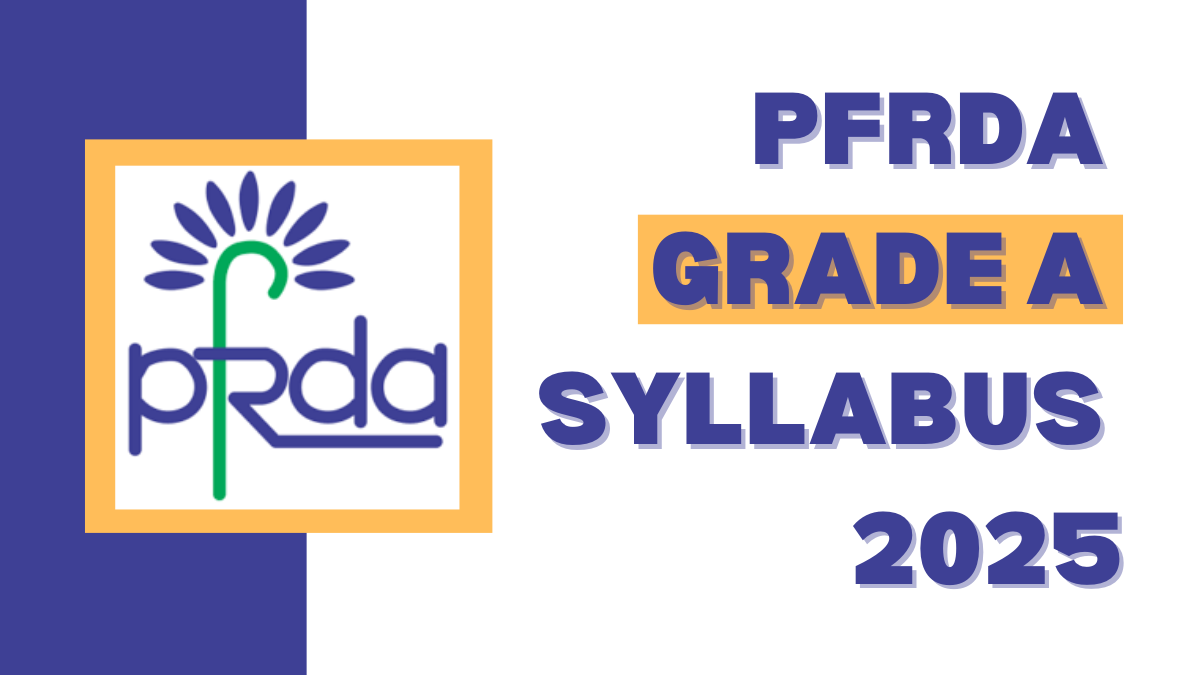

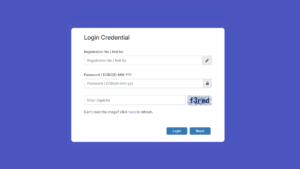 IBPS PO Mains Score Card 2025, Phase 2 M...
IBPS PO Mains Score Card 2025, Phase 2 M...
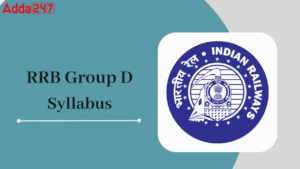 RRB Group D Syllabus 2025, Subject-Wise ...
RRB Group D Syllabus 2025, Subject-Wise ...
 OICL AO Recruitment 2025 for 300 Posts, ...
OICL AO Recruitment 2025 for 300 Posts, ...

